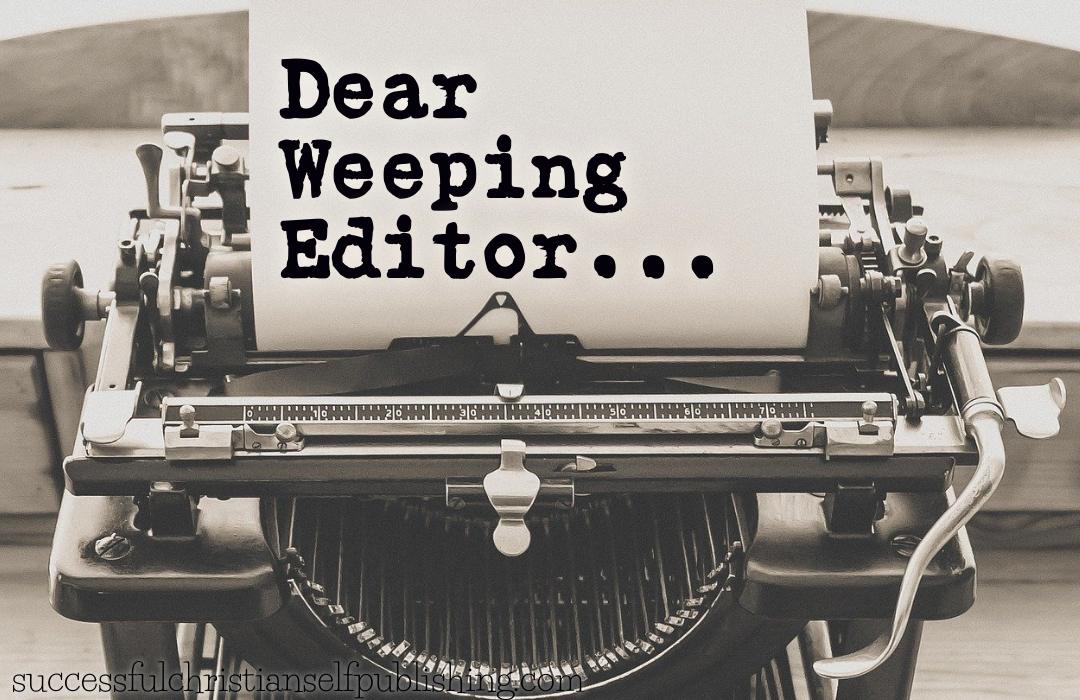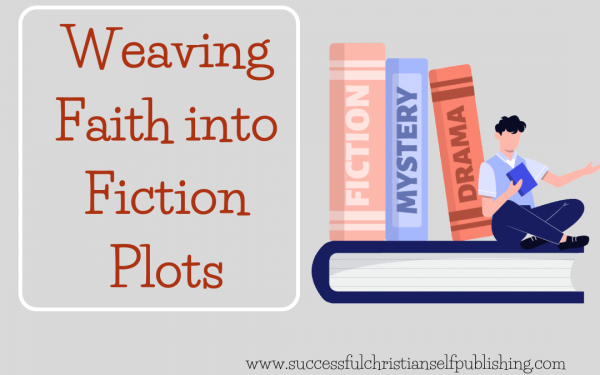Dear Weeping Editor: Smell

Dear Weeping Editor,
In a lot of novels I’ve read recently, many modern authors have apparently come down with a case of anosmia. I never read about the fresh smell after a rainstorm, or the comforting smell of a hot cup of coffee anymore.
Is smell considered too “pastoral” or “stinky” for contemporary works? Should I continue to look down my nose at this or hold my nose, too?
Signed,
Nostrils Flared
Dear Flared,
Thanks for writing. In the words of the great Ann Landers, I would like to invite any novelist who leaves out the sense of smell to “wake up and smell the coffee.”
Smell is a potent wizard that transports you across thousands of miles and all the years you have lived. Smells are the fallen angels of the senses.
―Helen Keller
Consider the visual nature of this quote about pancakes by Steinbeck and consider that he figuratively ends this paragraph with the “exclamation point” about how the pancakes smell.
Liza poured thick batter from a pitcher onto a soapstone griddle. The hot cakes rose like little hassocks, and small volcanoes formed and erupted on them until they were ready to be turned. A cheerful brown, they were, with tracings of darker brown. And the kitchen was full of the good sweet smell of them.
―John Steinbeck
Readers want to experience all seven senses along with your characters. What your characters smell, taste, hear, see, touch, and any variances in their proprioception sense or vestibular sense should transport the reader into the character’s experience. Good writers include these sensory details in ways that actively envelop the reader, not in ways that pull the reader out of the story.
An idealist is one who, on noticing that roses smell better than a cabbage, concludes that it will also make better soup.
―H. L. Mencken
The verb to smell is to sense with your nose and notice something because of its odor or fragrance. The noun smell is the quality of that something you can sense with your nose.
The evening air in Savannah had always carried fragrances of Spanish moss, cigar smoke, leather, and throughout everything the faintest scent of sea salt from the Atlantic. Here in Atlanta, those smells made way for the scents of cedar and pine, cooling asphalt, and the ever-present smell of car exhaust.
―Hallee Bridgeman, Valerie’s Verdict
Like any other sense, the sense of smell is a giant part of the human experience. As with nearly all of our sensory organs, our brains are located pretty close to our noses, and smells we can detect are much more important to us than just a simple recognition of a difference in the quality of the air.
When it comes to the sense of smell, the important thing to know about it is that the aroma you currently detect is tied to nearly every long term memory in your mind. Smell is powerful.
The best smell in the world is that man that you love.
―Jennifer AnistonHe has, like me, a sense of smell. I let him inhale me, then I slip away.
―Anais Nin
In fact, smell is one of the most powerful senses.
It grew late. Through the open door, stealthily, came the scent of madonna lilies, almost as if it were prowling abroad.
―D. H. Lawrence
Smell is one of our most important survival mechanisms. A bad smell warns us that we are in danger.
I seem to smell the stench of appeasement in the air.
―Margaret Thatcher
Some smells are born preprogrammed into the instinctive part of our minds. Even if you have never smelled a decaying human corpse before in your life (and most people haven’t), the first time you ever do you instantly “recognize” the smell for what it is.
Smell that? You smell that? Napalm, son. Nothing else in the world smells like that. I love the smell of napalm in the morning. Smells like—victory.
―Robert Duvall as Lieutenant Colonel Kilgore, Apocalypse Now (1979)Remember, gentlemen, what a Roman emperor said: The corpse of an enemy always smells sweet.
―Napoleon Bonaparte
Smell also evokes strong emotions.
Guests, like fish, begin to smell after three days.
―Benjamin FranklinLilies that fester smell far worse than weeds.
―William Shakespeare
If you lose your sense of smell, you can feel isolated and cut-off from the world. Smell is also one of the most important reasons people are attracted to each other.
The area in front of her door looked swept clean, and a mat bid a “Welcome Friends” greeting. On either side of the door, pots filled with fresh herbs covered tiered plant stands. Some he recognized, like the massive bush of rosemary. He smelled mint and parsley, among other scents he could only guess at. Oregano, maybe. All of the scents mingled and filled his senses with such a pleasant aroma that he wanted to just stand there and breathe it in deeply. He held his finger over the doorbell and hesitated only slightly before pressing it. Within seconds, Calla opened the door, and the first impression he had was the tantalizing smells coming from the apartment that even overpowered the scent of the herbs.
―Hallee Bridgeman, Courting Calla
The sense of smell is more closely linked with memory than any of the other senses. Smell can transport us back in time in a moment.
Hit a tripwire of smell and memories explode all at once. A complex vision leaps out of the undergrowth.
―Diane Ackerman
Let some of these words inspire you when you want to describe smells.
Smell Word Examples:
- acrid – a smell that is strong, bitter, and unpleasant in your nose and throat
- ambrosial – sweet smelling, fragrant, aromatic
- anosmic – odorless, no smell at all
- antiseptic – clean or pure smell that is bland an characterless
- aroma – a smell that is strong but pleasant
- aromatic – perfumed, fragrant, scented, sweet smelling, pungent, usually pleasing
- bouquet – the particular smell of a wine or flower
- citrusy – characteristic of citrus fruit in scent
- comforting – pleasant aroma
- coppery – smelling of copper
- damp – a wet smell
- delicate – subtle, faint, smell that is not overpowering
- delicious – a pleasant smell
- earthy – smelling like earth
- evocative – a smell that makes you think of something, often something that you experienced in the past
- faint – a smell that is not strong
- fetid – an unpleasant smell, usually caused by decay
- fishy – smelling like fish
- floral – smelling of flowers
- flowery – a flowery smell reminds you of flowers
- fragrance – a sweet or pleasant odor
- fragrant – with a pleasant smell
- fresh – a pleasant, newly made smell that can be clean, clear, cool, crisp, refreshing, sweet, warm
- fruity – smelling like fruit
- funky – a strong and unpleasant smell
- fusty – smells old, dusty, or damp
- gamy – having the distinctive fragrance of game
- garlicky – smelling of garlic
- heady – strongly aromatic, pungent, rich, intoxicating, spicy, piquant—not a mild smell
- heavy – a sweet and strong smell
- high – an old-fashioned word that describes a strong flavor and smell
- intoxicating – A smell that exhilarates, disorients, or excites
- laden – loaded with a strong smell
- leathery – smells like leather
- lemony – smells like lemon
- malodorous – scented, aromatic, redolent, fragrant, stinking.
- medicinal – smells like medicine
- minty – smelling of mint
- moldy – smelling old and moldering, as if spores permeate the air
- musky – similar to musk in smell
- musty – unpleasant, stale, and not fresh
- nasty – unpleasant smell
- nauseating – a smell that causes disgust, loathing, or revulsion—literally, a smell that induces nausea
- noisome – extremely unpleasant, especially because of being very dirty, unwshed, or having a bad smell
- odorous – a strong smell
- odor – a smell
- odorless – with no smell, like iocaine powder
- overpowering – very strong smell
- peachy – similar to a peach in color, taste, or smell
- perfumed – pleasant to smell because perfume has been added or used, or it has a natural perfume
- piquant – stinging, pungent, an aroma that tickles the nose.
- powerful – a strong smell
- pungent – a smell that is strong and sharp
- putrid – decaying, rotting, smelling very bad
- rancid – rancid food has hydrolyzed (rotted) oils and has a very unpleasant smell
- rank – a strong unpleasant smell or taste
- redolent – smelling of something
- reek – to smell strongly and unpleasantly
- rich – a smell that is strong and complex in a pleasant way
- ripe – a strong or unpleasant smell
- savory – pleasant to taste or smell—spicy, pungent, flavorsome, and aromatic, salty but not sweet
- scent – a particular smell, especially a pleasant one
- scented – infused with a pleasant smell
- sickly – makes you feel sick to smell it
- smelly – an unpleasant smell
- smoky – smelling of smoke
- sour – a taste or smell that is no longer fresh, like curdled milk
- spicy – having the quality, flavor, or fragrance of spice
- stale – not fresh or pleasant
- stench – a very bad smell, especially of decay or filth
- stinking – an unpleasant smell
- stuffy – a smell caused by higher than normal temperture in an enclosed or small area with no fresh air in it
- sweet – a pleasant smell that is associated with the taste of sweet
- tangy – a smell or taste that is strong and bitter in a pleasant way
- whiff – a slight smell of something
- woody – an earthy smell, smelling of wood

Gregg Bridgeman is the Editor-in-Chief at Olivia Kimbrell Press. He is husband to best-selling Christian author Hallee Bridgeman and parent to three. He continues to proudly serve in the US Armed Forces and has done so in either an active or reserve capacity for more than twenty years as an airborne and air assault qualified paratrooper, earning a Bronze Star for his service. Most importantly, he was ordained in October of 2001 after surrendering his life to Christ decades earlier.






